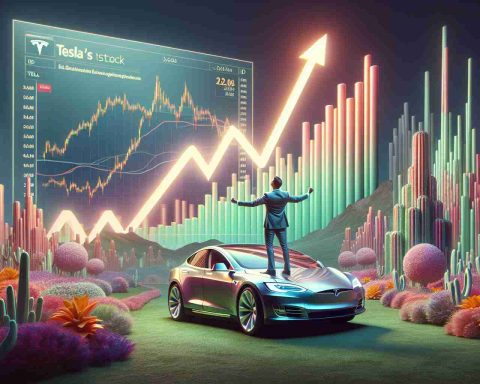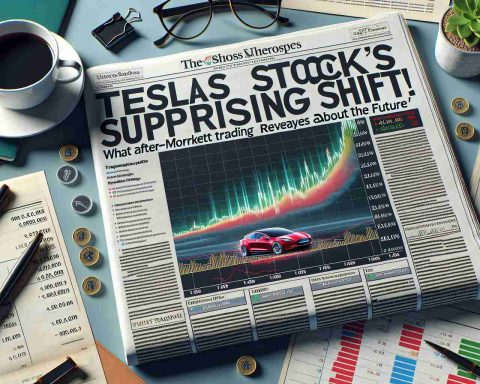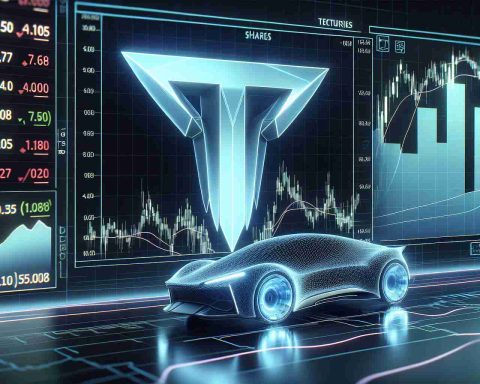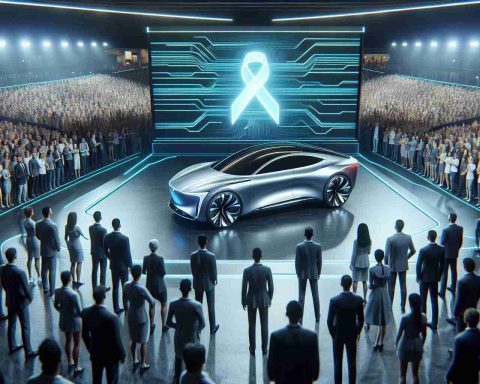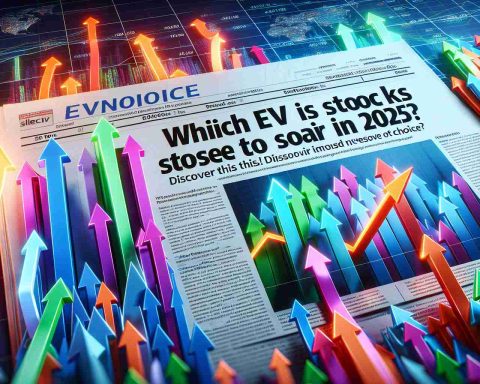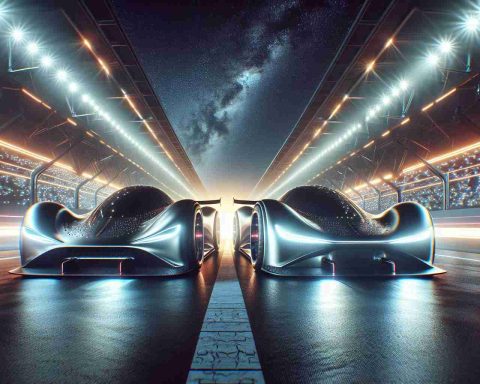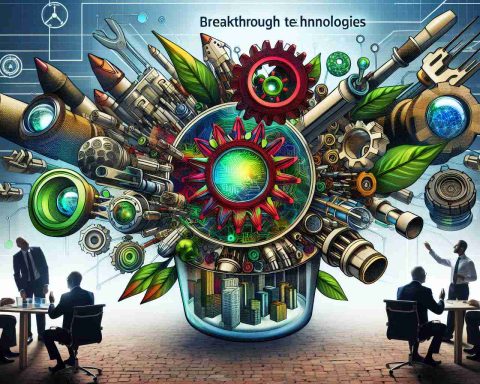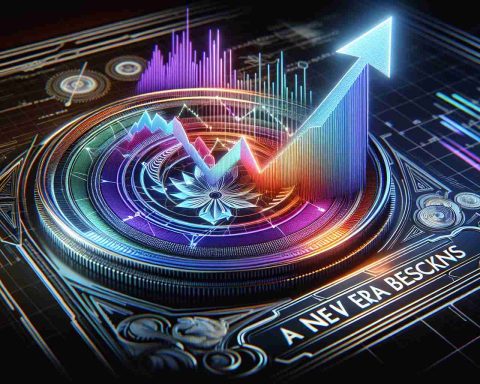Tesla’s Rollercoaster Ride in the Market
Tesla (NASDAQ: TSLA) has experienced remarkable fluctuations recently, with its stock price skyrocketing by a staggering 100% since October. Despite this surge, a recent dip of 11% raises questions about its sustainability. Investors are left wondering if the company’s declining vehicle sales from last year may signal a looming downturn in stock value.
The automotive industry is becoming increasingly competitive, with Tesla benefiting from robust advantages such as a reputable brand, innovative technology, and a vast customer base. However, the significance of being a pioneer in the electric vehicle (EV) market is diminishing as new contenders emerge.
Over the past few years, Tesla finally turned its losses into profit, with earnings per share (EPS) reflecting positive growth trends. Alongside rising profits, the company has enjoyed a substantial increase in revenues, which has fuelled investor enthusiasm.
Nevertheless, Tesla faces serious competition, especially from the likes of BYD, which outpaced Tesla’s sales significantly last year. As these rivals vie for market share, price pressures in the EV sector could threaten Tesla’s profit margins.
Interestingly, Tesla’s business model includes a growing energy storage division that could serve as a pivotal growth area. While the competitive landscape may narrow the field, making room for stronger players, the current share price seems excessively high at 117 times earnings, leaving some investors hesitant to buy at this level.
Implications of Tesla’s Market Dynamics
Tesla’s recent stock fluctuations serve as a microcosm for broader trends impacting society and the global economy. As the electric vehicle (EV) market evolves, the competitive landscape is shifting, revealing the challenges and opportunities that lie ahead for both Tesla and emerging automakers. As traditional automotive manufacturers invest heavily in EV development, the potential for job displacement within legacy industries grows. This transition demands a workforce equipped with new skills, affecting not only individual livelihoods but also local economies reliant on automobile manufacturing.
Moreover, Tesla’s success acts as a catalyst for societal attitudes towards sustainability and climate change. Increased consumer interest in EVs signals a cultural shift; drivers are now more likely to prioritise environmentally friendly alternatives. As public transit and urban planning integrate electric solutions, the long-term viability of such initiatives could play a significant role in combating climate change.
In terms of environmental impact, Tesla’s expansion into energy storage highlights a critical future trend. As renewable energy sources like solar power proliferate, energy storage solutions become essential for sustainability. The company’s innovations in storage technology could lead to more efficient energy usage on a larger scale, potentially reshaping energy consumption patterns worldwide.
Looking forward, the market dynamics surrounding Tesla reflect a long-term significance that extends beyond its corporate success. The interplay of competitive pressures, environmental concerns, and cultural shifts could very well define the future of mobility and the global economy’s green transition. Understanding these factors is crucial for investors, consumers, and policymakers alike.
Is Tesla’s Stock Surge Sustainable? Insights into Market Trends and Competition
Analyzing Tesla’s Current Market Position
Tesla (NASDAQ: TSLA) has been riding a rollercoaster in the stock market with its shares surging over 100% since October. However, a recent drop of 11% indicates volatility, prompting investors to reconsider the sustainability of such rapid gains. Amid these fluctuations, it’s crucial to delve deeper into the potential challenges and opportunities Tesla faces in the evolving electric vehicle (EV) landscape.
Pros and Cons of Tesla’s Current Status
# Pros:
1. Strong Brand Recognition: Tesla is a household name in the electric vehicle sector, enjoying enhanced customer loyalty and a strong marketing presence.
2. Innovative Technology: The company leads in EV technology, including advancements in autonomous driving and battery efficiency.
3. Diverse Revenue Streams: Beyond vehicle sales, Tesla’s energy storage solutions are increasingly contributing to its bottom line.
# Cons:
1. Intensifying Competition: Established automotive brands and newer entrants like BYD are aggressively expanding their EV offerings, potentially eroding Tesla’s market share.
2. High Stock Valuation: With a Price-to-Earnings (P/E) ratio of 117, many investors are questioning whether the stock is overvalued, adding pressure for future performance.
3. Slowing Sales Growth: While Tesla has turned previous losses into profits, sales figures show signs of stagnation year-over-year, raising concerns over consistent demand.
Market Trends Affecting Tesla
The automotive market is shifting dramatically with the rise of electric vehicles. According to recent industry reports, global EV sales are projected to grow substantially in the next few years, with an expected 40% increase in sales by 2025. This surge will likely exacerbate competition amongst manufacturers, compelling Tesla to innovate continuously to maintain its edge.
Innovations and Future Directions
Tesla’s commitment to sustainability and energy efficiency extends beyond automobiles. Its ventures into solar energy and battery storage are strategic moves aimed at diversifying revenue streams and reinforcing its brand as a leader in sustainable technology. Analysts predict that the energy storage market, projected to grow by over 25% annually, could become a significant growth driver for Tesla.
Limitations and Future Predictions
Despite its innovative edge, Tesla faces inherent limitations:
– Supply Chain Issues: Like many in the automotive industry, Tesla is vulnerable to disruptions in the supply chain, particularly for critical components like semiconductors.
– Regulatory Risks: Changes in government regulations regarding EV incentives can impact sales and profitability.
– Market Saturation: As more competitors enter the EV space, Tesla must find ways to differentiate its offerings to avoid market saturation.
Conclusion: Is Tesla Still a Good Investment?
The future of Tesla remains uncertain amid a shifting competitive landscape. While the brand is synonymous with electric vehicles, the drive toward greater market share by production rivals could put pressure on Tesla’s profitability and stock value. Investors should carefully consider these dynamics and remain informed about industry trends and company innovations before making decisions.
For more detailed market insights and performance analyses, visit Tesla’s official site.





